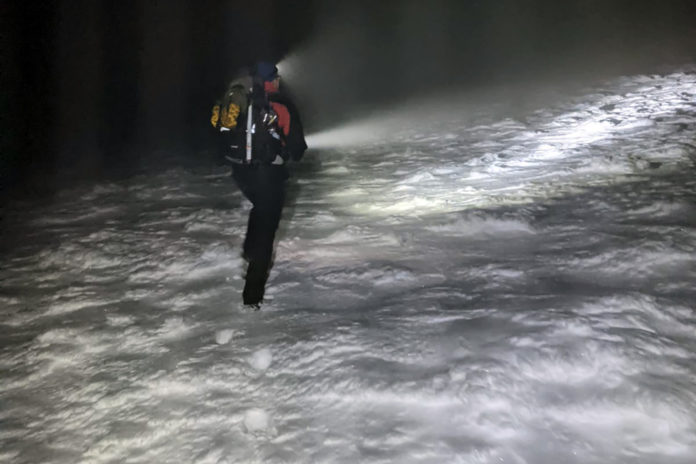
Unprepared and underdressed walkers on the Galtees are running the risk of serious injury or death, mountain rescue has warned.
Liz Browne, public relations officer with South Eastern Mountain Rescue Association (SEMRA), said that the group has seen a jump in the amount of call outs.
Last Saturday they had their fourth call of 2021 already when they were called to Galteemore after a solo female walker had got into difficulty on the peak as she descended in the dark.
The call was received at 5.50pm and after a search of the area the brave mountain rescue team, including SARDA Dog Mick, found the woman at 8.20pm.
All were safely off the mountain by 9.30pm. They were also called to an incident near Cahir on Sunday evening – making it five incidents already this year.
Liz said that in 2019 the SEMRA team dealt with 29 call outs while in Covid-19 hit 2020, they dealt with 45.
“We are constantly surprised that we are not out more than we are. The volume of calls have increased greatly and we saw an extra number of calls at the end of the year as restrictions were lifted.
“We are finding more and more people heading out and exercising on the mountains – that is great but a lot of people are taking on too much, too soon. They don’t realise what they are getting themselves into.
“People need to be more prepared. You can start your day on the Galtees in great weather but very quickly the fog comes down and it gets dark, people are then trapped on the hills with no map skills or knowledge of how to deal with the issue of just getting down safely,” she said.
Liz said the call-outs are split half and half with lower leg injuries, such as rolled ankles, and with getting lost.
“An awful lot of people are going up not wearing hiking boots for example. They are wearing fashion runners that are totally unsuited. This makes it very likely they will slip, they also have no extra gear with them.
“If they are caught up there, they can’t put on extra hats and gloves, they have been going well outside their comfort zone because they really didn’t realise what they were getting themselves into.
“We have found people walking who didn’t realise that it would take as long. We have rescued people who have then taken a wrong turn in the dark or when the weather changed.
“We are a non judgemental group, we just go out to rescue them. But there needs to be a realisation that it might be a nice day down below but up on top it could be minus ten degrees celsius,” she added.
Liz advised people to wear hiking boots to limit the possibility of a rolled ankle. She said that it is very likely that suffering a lower leg injury on the peak would need a rescue and that this would leave the person at risk of deadly hypothermia as they waited for the team.
“It takes just 20 minutes for the cold to set in. If we know where you are it will still take us an hour and half to get to you.
“We can use phone tech, send a text which will identify where you are but that will not be possible if your phone battery runs down. We will then have to do a search which will take more time.
“Firstly don’t go out of your five kilometres and anyway, now is not the time to start if you have never gone up a mountain before.
“You might think it is grand, but you will not only put yourself at risk, but the people who are with you and you are putting extra pressure on frontline services like the guards and the hospitals,” she added.
Mountain Rescue Ireland strongly criticised people who are going up the mountains in bad weather.
“Some teams have been put under enormous pressure with the quantity of callouts that have occurred. It is not just the cold snap, it’s the revised Covid-19 lockdown restrictions also.
“Some of these callouts are absolutely needless. Heading out on a mountain trek in bad weather, going ill-equipped and untrained is not a wise decision to make,” MRI said in a statement.
Mountain Rescue Ireland responded to 345 incidents in 2020, a slight increase on the previous 12 months when there were 330 callouts.
28% of calls were at night, while a quarter required the deployment of a helicopter.
The teams were tasked with rescuing 65 people who were lost, 59 who were reported missing, 132 with minor injuries, and 50 with serious injuries. Mountain Rescue Ireland also responded to 25 incidents where a person died.







